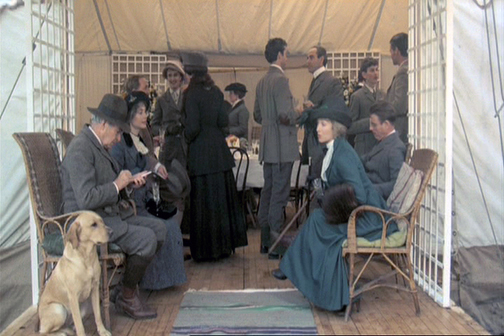 Bridges’s hunt picnic is faithful to Isabel Colegate’s gently melancholy novel of English gentry circa 1913, The Shooting Party. The title The Shooting Party is intended to suggest the larger “shooting party” of the looming world war. Though they know it, Sir...
Bridges’s hunt picnic is faithful to Isabel Colegate’s gently melancholy novel of English gentry circa 1913, The Shooting Party. The title The Shooting Party is intended to suggest the larger “shooting party” of the looming world war. Though they know it, Sir...
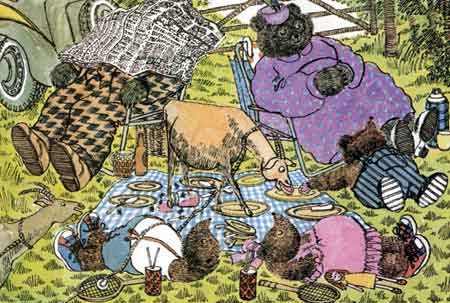 Picnic is the euphemism for a daylong eating orgy in Gordon’s Wilberforce Goes on a Picnic (1982). It’s the story of obese bears and a goat, who collectively devour mounds of hamburgers on rolls, sandwiches, a jar of catsup, a bowl heaped with mashed...
Picnic is the euphemism for a daylong eating orgy in Gordon’s Wilberforce Goes on a Picnic (1982). It’s the story of obese bears and a goat, who collectively devour mounds of hamburgers on rolls, sandwiches, a jar of catsup, a bowl heaped with mashed...
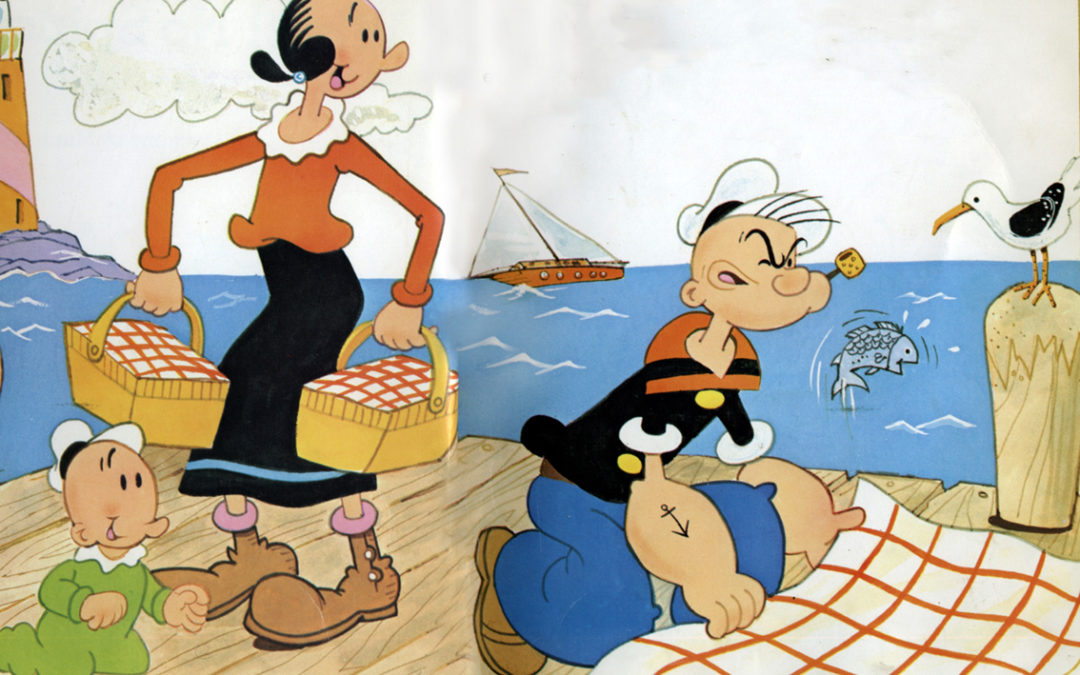 Several Popeye stories include picnics –all with spinach. There is one picnic in which Olive Oyl tries to shift Popeye from his tried-and-true diet. It’s Edward Knapp’s What! No Spinach, and at this picnic, Olive offers Popeye baskets packed with salami, fresh rye...
Several Popeye stories include picnics –all with spinach. There is one picnic in which Olive Oyl tries to shift Popeye from his tried-and-true diet. It’s Edward Knapp’s What! No Spinach, and at this picnic, Olive offers Popeye baskets packed with salami, fresh rye...
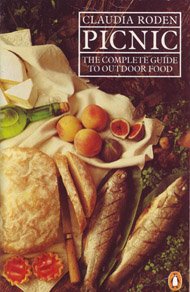 Roden’s Picnic appeared in England as Picnic (1981), then revised and retitled Everything Tastes Better Outdoors (1984). Her impetus is the belief that “There is something about fresh air and the liberating effect of nature which sharpens the appetite and...
Roden’s Picnic appeared in England as Picnic (1981), then revised and retitled Everything Tastes Better Outdoors (1984). Her impetus is the belief that “There is something about fresh air and the liberating effect of nature which sharpens the appetite and...
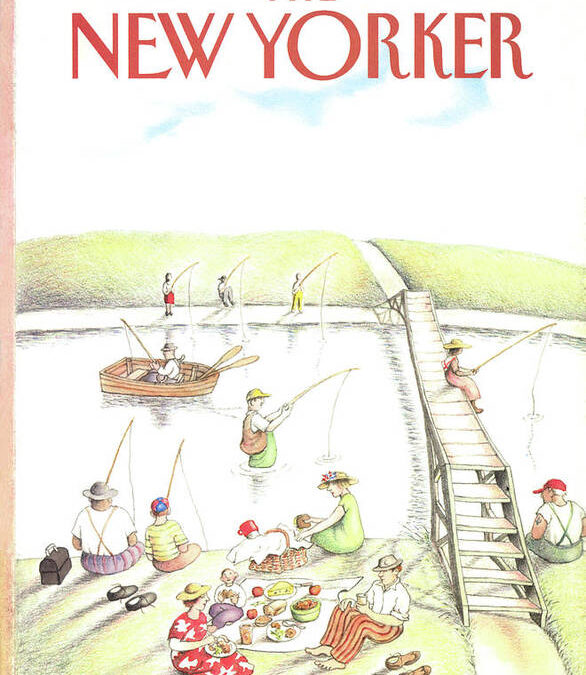 Burgess’s Picnic by a River is The New Yorker’s August cover. By the side of a placid river, a mother, father, and son sit on a plate of cheese, a bowl of salad, a loaf of bread, fruits, and lemonade, Mother has a plate, and the son has a sandwich. Shoes off, they...
Symons’s catchy title One Continuous Picnic: A History of Eating in Australia is an exaggeration. Picnic is used to raise expectations of social conviviality and high spirits in this historical survey of Australia and its cookery. See Michael Symons. One Continuous...
Burgess’s Picnic by a River is The New Yorker’s August cover. By the side of a placid river, a mother, father, and son sit on a plate of cheese, a bowl of salad, a loaf of bread, fruits, and lemonade, Mother has a plate, and the son has a sandwich. Shoes off, they...
Symons’s catchy title One Continuous Picnic: A History of Eating in Australia is an exaggeration. Picnic is used to raise expectations of social conviviality and high spirits in this historical survey of Australia and its cookery. See Michael Symons. One Continuous...
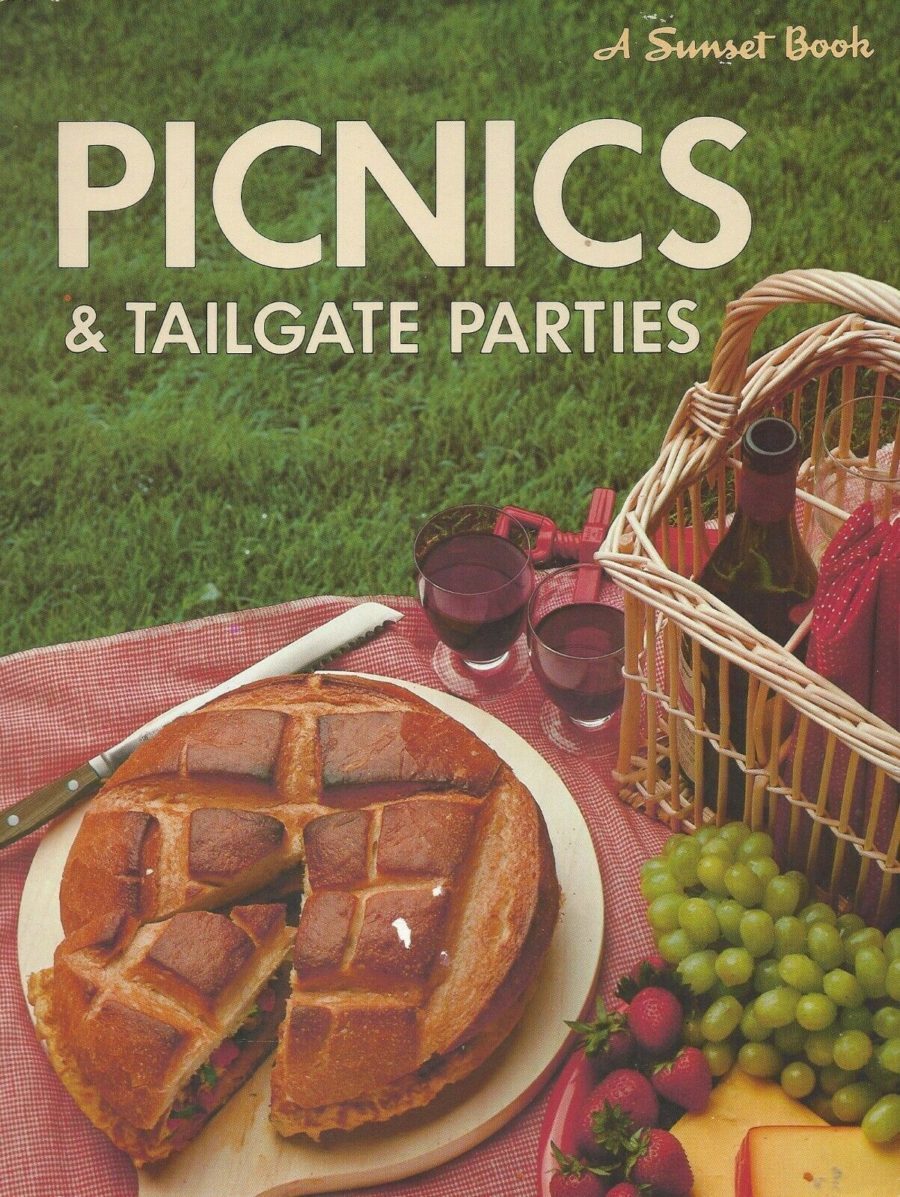 Good advice for packing a picnic: “Pack the unbreakable items first, the French bread last of all.” See Cornelia Fogle. ed. Sunset Books, Picnics and Tailgate Parties. Menlo Park, California: Lane Publishing, 1982
Good advice for packing a picnic: “Pack the unbreakable items first, the French bread last of all.” See Cornelia Fogle. ed. Sunset Books, Picnics and Tailgate Parties. Menlo Park, California: Lane Publishing, 1982
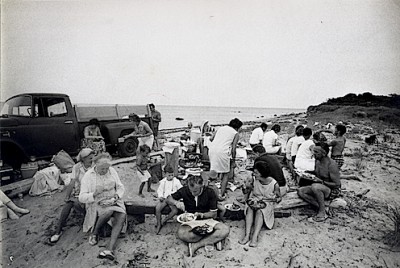 Claiborne’s A Feast Made for Laughter (1982) relates the anecdote of the “Chefs’ Picnic” (1965) staged on Gardiners Island, East Hampton, NY, for twenty-five and catered by five four-star chefs. According to Claiborne, he was the star. His...
Claiborne’s A Feast Made for Laughter (1982) relates the anecdote of the “Chefs’ Picnic” (1965) staged on Gardiners Island, East Hampton, NY, for twenty-five and catered by five four-star chefs. According to Claiborne, he was the star. His...
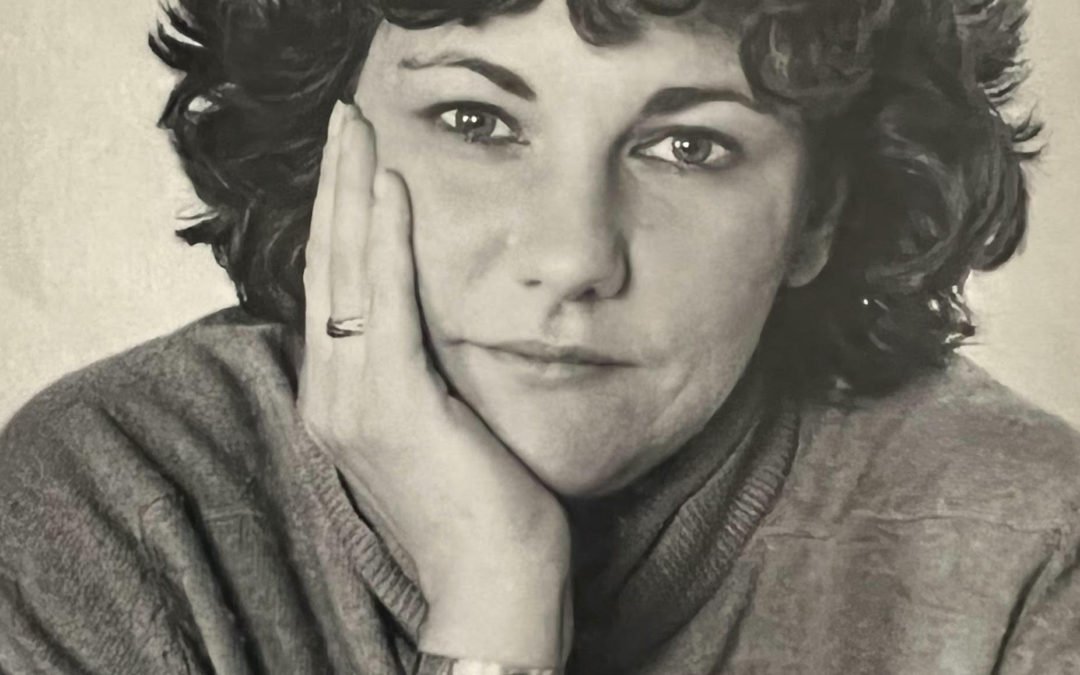 Colwin’s is a New York-based novel about Polly [Dora] Solo-Miller Demarest, married to Henry Demarest, an affluent, Jewish East Manhattan husband she loves, and Lincoln Bennett, an artist who lives in Lower Manhattan. Polly finds family happiness by leading two lives,...
Colwin’s is a New York-based novel about Polly [Dora] Solo-Miller Demarest, married to Henry Demarest, an affluent, Jewish East Manhattan husband she loves, and Lincoln Bennett, an artist who lives in Lower Manhattan. Polly finds family happiness by leading two lives,...
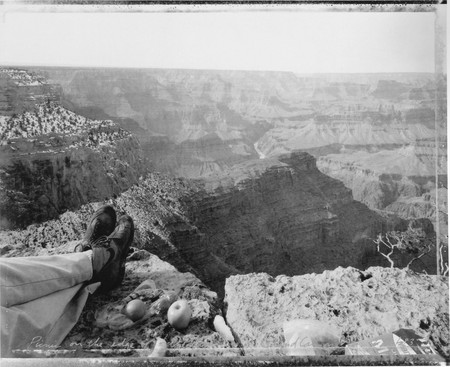 Relaxed and easy. I wish I had created this photograph. Mark Klett’s Picnic on the Edge of the Rim is a Grand Canyon vista that brings the vast landscape into manageable focus. Featured Image: Picnic on the Edge of Rim, Grand Canyon (1983), Gelatin silver print...
Relaxed and easy. I wish I had created this photograph. Mark Klett’s Picnic on the Edge of the Rim is a Grand Canyon vista that brings the vast landscape into manageable focus. Featured Image: Picnic on the Edge of Rim, Grand Canyon (1983), Gelatin silver print...










